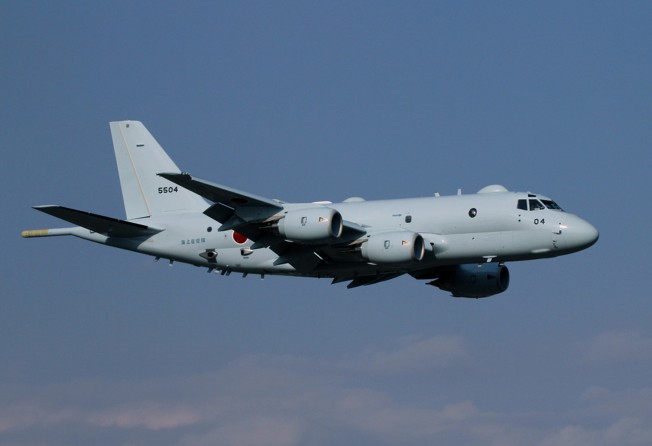
Top Chinese scholar blasts US for ‘fanning discord’ in South China Sea with Japan air patrol proposal

A leading Chinese international relations scholar has denounced the United States for "sowing discord in the South China Sea" after the Pentagon came out in open support for Japanese air patrols into the region.
The sharply-worded commentary, published in the overseas edition of Communist Party mouthpiece People’s Daily, appears to be a response to comments by Robert Thomas, Commander of the US Navy’s Seventh Fleet, welcoming Japan to extend its air patrols in the South China Sea where “Chinese coastguard and the (navy) overmatch their neighbours”.
The proposal was later endorsed by US Department of Defence, who said it would “help contribute to stability in the region”.
Shen Dingli, deputy director of the Institute of International Studies at Fudan University and one of China’s top international relations experts, lashed out at the proposal, insisting it is intended to sow discord in the region in the name of “establishing regional stability”
“An important reason behind the instability in the South China Sea is the meddling and instigation by the United States, who has promoted unjust causes for its own selfish interests,” Shen wrote. “It has complicated the disagreements among parties which could have possibly been resolved through negotiations.”
Though relations between China and Japan have become increasingly hostile in the past two years over the disputes concerning a group of uninhabited islets in the East China Sea, Japan is not party to the dispute in the South China Sea, where China, the Philippines, Vietnam, Taiwan Malaysia, and Brunei have competing claims.
“That senior US military and defence officials are encouraging Japan to get involved in South China Sea affairs, reflects the Pentagon’s objective of stirring trouble in the South China Sea by drawing more parities into the disputes,” Shen said.
“Some super power outside the region has vigorously sought to intervene in South China Sea affairs, anxious to see the world in disorder,” Shen added.
When contacted by the South China Morning Post on Monday, Shen said China must proceed in accordance with both international and national laws in response to Japan’s possible air patrols over the South China Sea in the future.
But he suggested that national laws can be amended to adapt to new situations.
“Under the premise of ‘not against international laws’, China’s institutional laws can keep pace with the times,” Shen said in an e-mail interview.
The Japanese government has not openly responded to Thomas’ proposal.
Chinese Foreign Ministry spokeswoman Hua Chunying last Friday said countries outside the region should “refrain from sowing discord among other countries”.
The Global Times, a newspaper affiliated with People’s Daily, has warned in an editorial that Japan’s air patrol over the South China Sea will prompt drastic countermoves by China.
It said “China can consider implementing an Air Defence Identification Zone over the South China Sea, escalating its naval base development in the region, or strengthening its military cooperation with Russia in northeastern Asia” in retaliation.
“China is once again trying to draw artificial lines about who is a member of the region and who are outsiders… [a move] designed to influence Southeast Asian states to oppose the proposal for its potential destabilising impact on the region,” said Carlyle Thayer, an emeritus professor at the Australian Defence Force Academy.
He added that the US Department of Defence's proposal indicates that a change in mission of the Japanese Self-Defence Forces is likely to be included in the Japan-US Defence Guidelines that are being upgraded and revised.
“Japanese participation would be a form of burden-sharing with the United States, as both share a concern about Chinese naval, air and coastguard deployments,” he said.
The Seventh Fleet is the largest of the forward-deployed US fleets. With its home port in Japan, the fleet is the most powerful naval force in the western Pacific.
